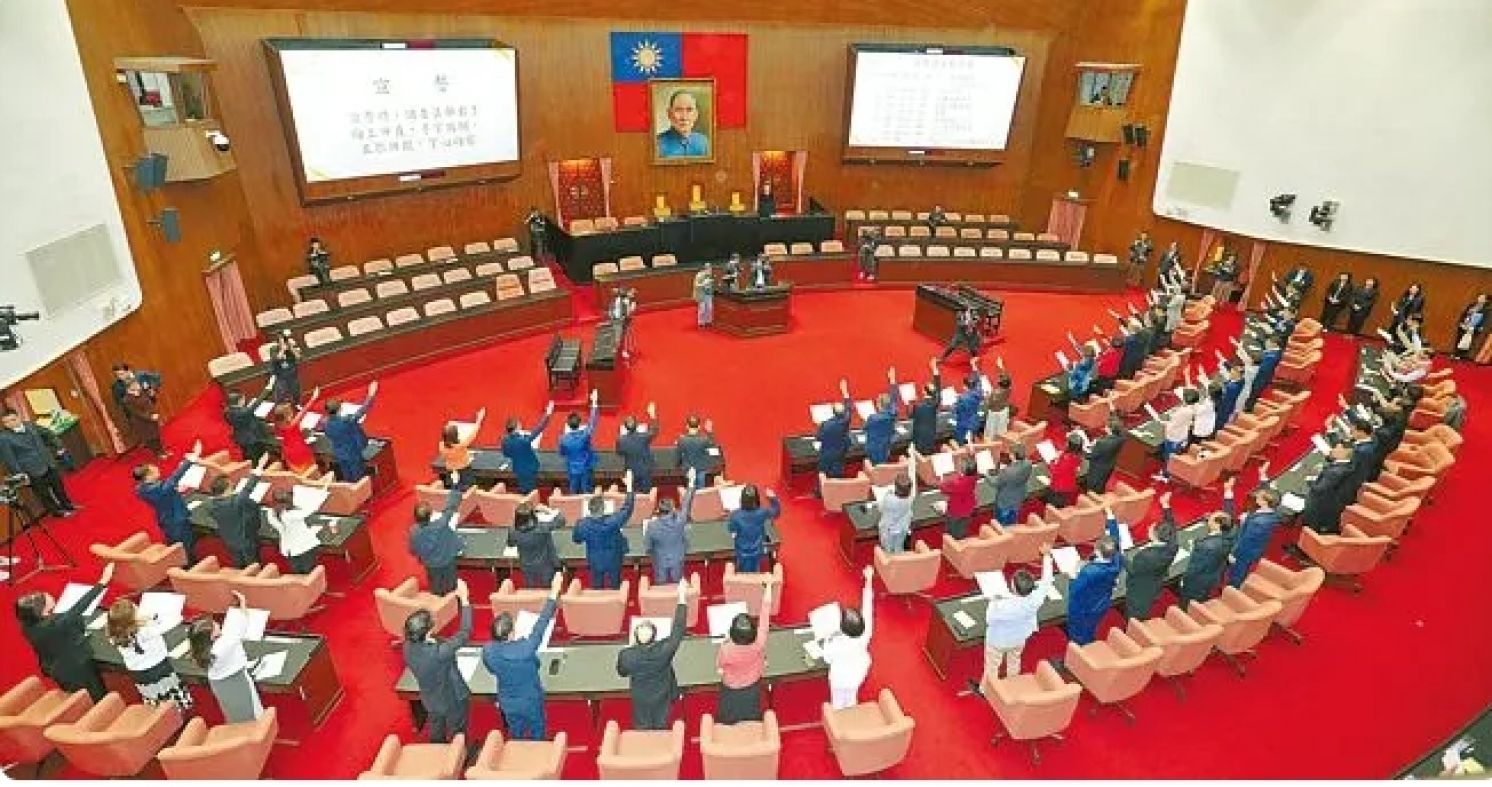
Legislative Yuan Opens Session: DPP to Focus on Recalls, Undermining Opposition Agenda on People's Livelihood
United Daily News Commentary, February 12, 2024
The new legislative session is fast approaching. The passage of the central government budget for this year paves the way for a so-called “bill-review period.” The Taiwan People’s Party (TPP) has been rolling out priority bills, while Chairman Eric Chu of the Kuomintang (KMT) has emphasized that people's livelihood bills would take precedence. However, Democratic Progressive Party (DPP) caucus whip Legislator Ker Chien-Ming has declared it a "recall session," forcing the KMT to respond with a "counter-recall" strategy, and the TPP has initiated actions to "eliminate green guards." A political confrontation between the ruling and opposition parties seems imminent.
Additionally, during the last session, the Legislative Yuan blocked appointments to the Constitutional Court and the National Communications Commission (NCC), and these appointments remain unresolved. The TPP has called for the Executive Yuan to resubmit the nominations and advocates for strict scrutiny in the new session. Meanwhile, the KMT and TPP plan to push for judicial reform bills, and the Executive Yuan is expected to submit multiple reconsideration proposals, which will likely shorten the time available for bill reviews.
The 11th Legislative Yuan lacks a majority for any single party. With controversial bills and the central government's budget under scrutiny, along with multiple revisions submitted by the Executive Yuan, conflicts between the executive and legislative branches have been ongoing. Last week, Speaker Han Kuo-yu of the Legislative Yuan convened a party caucus meeting, and lawmakers agreed that the new session would begin on February 25. The priority would be handling the review of the Public Officials Election and Recall Act, marking the start of intense legislative battles.
As the new session begins, opposition parties have revealed their priority bills. The TPP has proposed judicial reform bills targeting crimes like obstruction of justice, illegal lobbying, and bail jumping. The KMT plans to amend the Electricity Act to promote a "carbon-free" energy future. The Executive Yuan has also held coordination meetings to discuss industrial innovation and foreign talent recruitment laws, preparing responses to the opposition’s proposed changes, such as binding referendums to elections and absentee voting.
Although the new session is officially for reviewing bills, the recall issue has taken center stage. Even President Lai Ching-te has expressed concern, with Speaker Han urging him to intervene and stop the rising wave of recalls. This suggests that both ruling and opposition lawmakers may be stretched thin, focusing on competing issues.
TPP caucus deputy whip Legislator Chang Chi-kai stated that the party will not stand by as the DPP engages in what he calls political recalls. He mentioned that several high-profile KMT lawmakers have already reached out, and the TPP plans to actively campaign against these politically motivated recalls.
Some KMT lawmakers believe the party should avoid focusing on recalls and instead push forward with major livelihood bills. They argue that emphasizing people’s livelihood will help de-escalate tensions and prevent a situation where both major parties lose support from the middle ground, as the recall issue appears to lack significant public engagement.
KMT members also suggested that, when faced with opposition bills on people's livelihood, the DPP might be stuck between blocking or supporting them. They proposed that the KMT and TPP collaborate on common bills and pass those that do not face strong opposition from the DPP.
In regard to unresolved personnel appointments, TPP caucus whip Huang Kuo-chang questioned why the nominations had not been submitted yet and whether the delay was causing national paralysis. A KMT lawmaker also expressed skepticism about the appointments, suggesting that DPP’s lack of sincerity in submitting names to the Legislative Yuan might signal their desire for a confrontation with the opposition.
Finally, the KMT lawmaker believes that the Legislative Yuan’s schedule should not be affected by recalls. He argued that pushing for recalls while avoiding legislative duties could backfire, especially in districts where political engagement is low. Even DPP-strong districts may not support a purely politically-driven recall push.
From: https://vip.udn.com/vip/story/121160/8541427
〈Back to Taiwan Weekly Newsletter〉